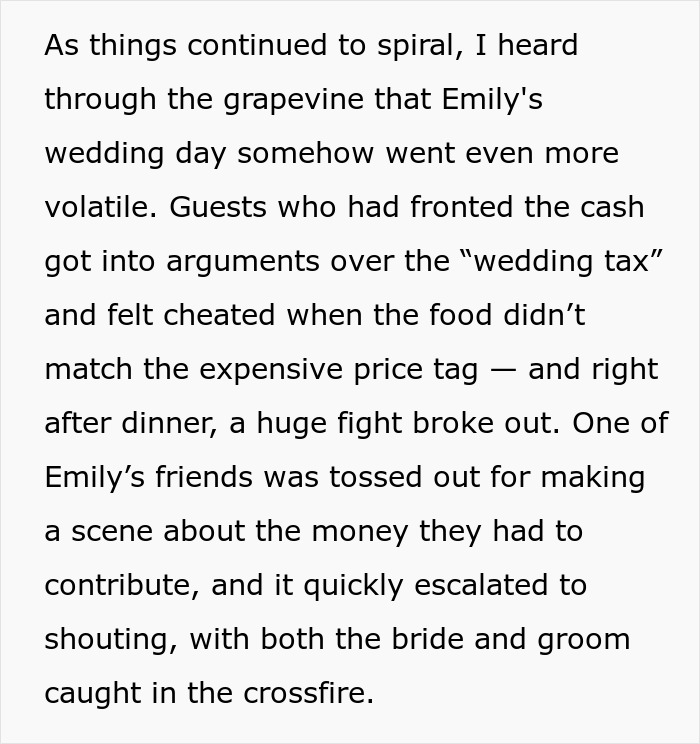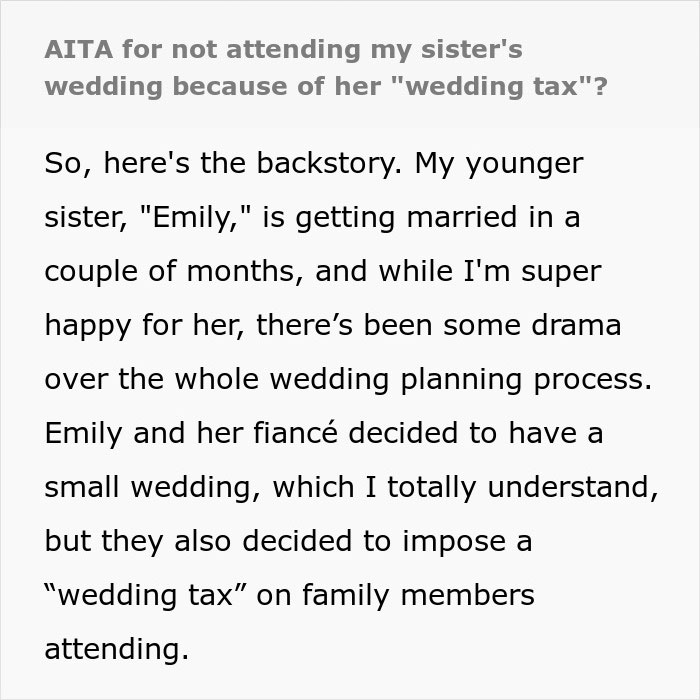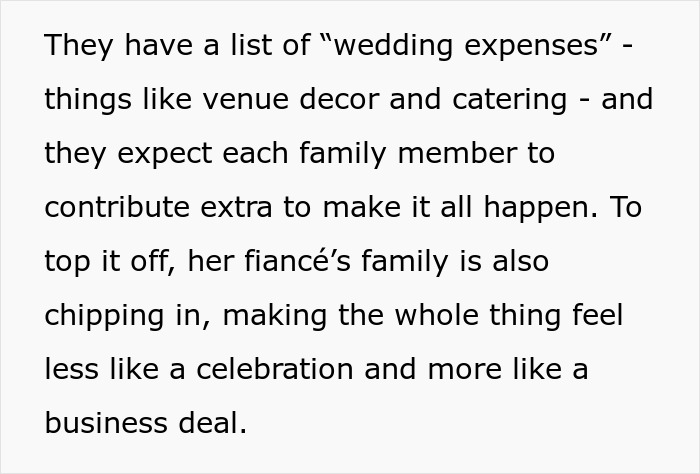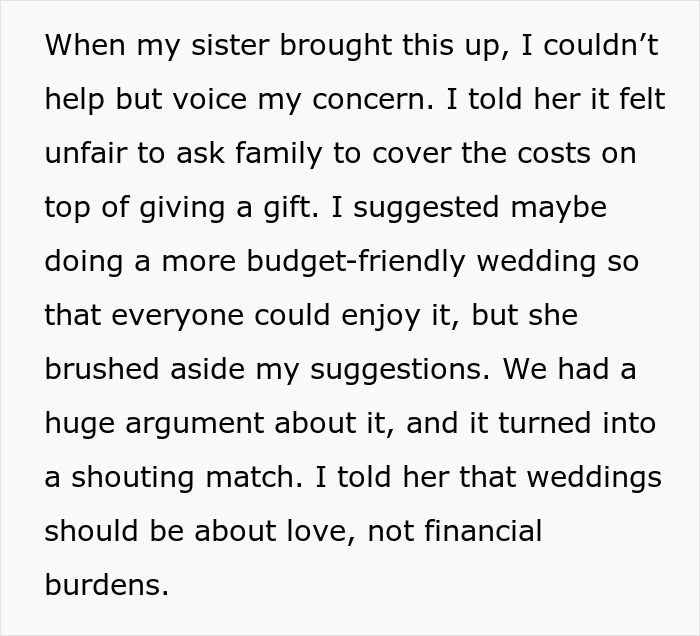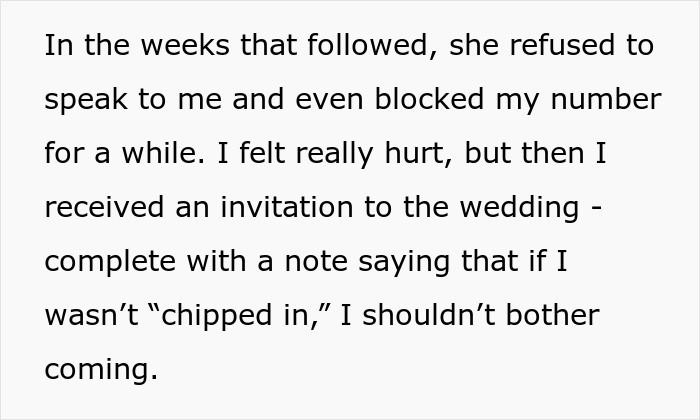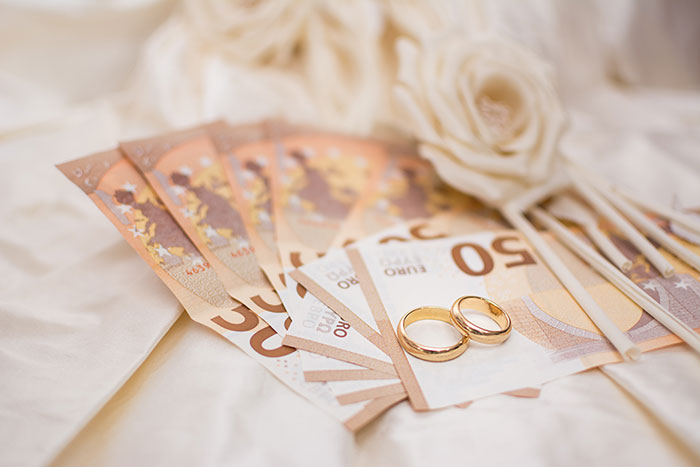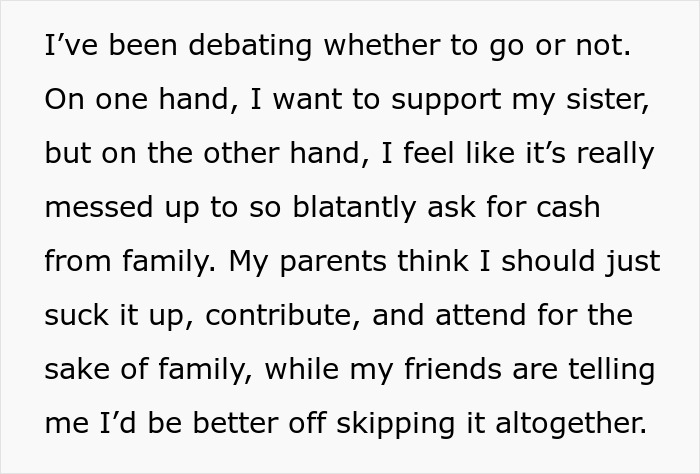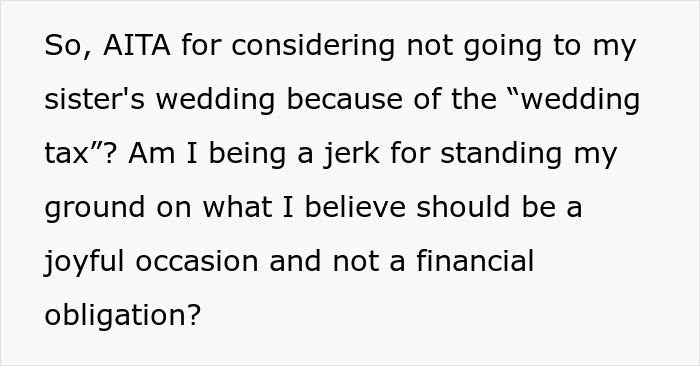“Chaos Unleashed: How a ‘Wedding Tax’ Sparked a Day of Screams, Fights, and Refund Demands!”
One bride turned her back on etiquette when she decided to impose a “wedding tax” that would see her guests funding her big day
Image credits: bristekjegor (not the actual image)
When her sibling questioned her decision, the bride simply told them to “chip in or don’t bother coming”
Image credits: namii9 (not the actual image)
Image credits: EyeEm (not the actual image)
Image credits: HeavyWolverine8706
Historically, the bride’s family would foot the bill for a wedding, because of an old tradition known as the “dowry”
The dowry custom dates back to the ancient Roman Empire and was a gesture from the bride’s family to offset her future living costs. Britannica defines a dowry as “the money, goods, or estate that a woman brings to her husband or his family in marriage.” The site further explains that a dowry is a “conditional” gift, meant to protect the bride against any possible future ill-treatment by her husband and his family. In the case of divorce or the death of the husband, the dowry would be returned to the wife and her family.
Over the years, the tradition evolved, with the bride’s family footing the wedding bill instead of handing over cash, goods, or property. Under this agreement, the groom’s family would sometimes be responsible for covering the bar tab, the honeymoon, and a few other expenses.
But as is the case with many things in life, that tradition has further evolved. “As couples modernize wedding planning and are getting married later after establishing careers, more of them are paying all—or a substantial portion—of the costs of their own weddings,” explained certified financial planner, Cynthia Meyer. “Who pays for what is more flexible.”
